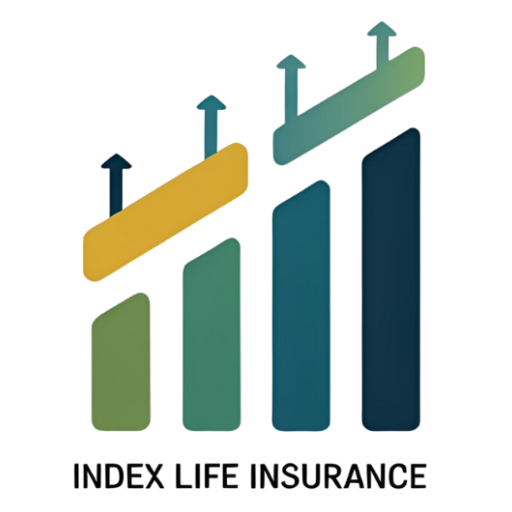In lending, the concept of early repayment usually refers to paying off a loan before its scheduled end date—often with the goal of saving on interest. But how does this idea translate to life insurance, especially with cash value policies like Indexed Universal Life (IUL)?
Life insurance policy loans introduce a unique twist on repayment. You’re borrowing your own money (specifically, the policy’s cash value), often tax-free. There are no fixed repayment terms—but that doesn’t mean there aren’t smart (and risky) ways to handle early repayment.
In this article, we’ll explore how early repayment works in life insurance, why it matters, when it’s optional or critical, and how it influences your financial planning and policy performance.
What Is a Life Insurance Policy Loan?
With an IUL or other cash value life insurance policy, once you’ve built up sufficient cash value, you can take out a loan using that value as collateral. Here’s what sets it apart from traditional loans:
- No credit checks or income verification
- No required repayment schedule
- Interest accrues on the borrowed amount
- Your policy’s cash value remains invested and may continue to earn interest (depending on the loan type)
But just because you aren’t forced to repay on a schedule doesn’t mean you shouldn’t think strategically about repayment—especially early repayment.
What Does Early Repayment Mean in Life Insurance?
Early repayment in life insurance typically refers to:
- Repaying a policy loan sooner than expected
- Paying off borrowed principal and interest voluntarily, rather than waiting
This differs from prepayment penalties in mortgages or auto loans. With policy loans, there’s no fee for paying early. But there are pros and cons to doing so, and timing matters.
Benefits of Early Repayment of Policy Loans
Here are some strategic benefits to repaying your life insurance loan early:
1. Preserve Policy Performance
Unpaid loans reduce your policy’s death benefit and can diminish its growth potential. Repaying early restores full benefit and improves compounding returns.
2. Avoid Lapse Risk
Large, unpaid loans can cause your policy to lapse if the loan balance plus accrued interest exceeds the cash value. Early repayment lowers this risk.
3. Reduce Compound Loan Interest
Policy loans often charge compound interest. Paying early means you stop the interest snowball before it grows too large.
4. Protect Tax Benefits
If your policy lapses with an outstanding loan, the borrowed amount may become taxable. Early repayment helps avoid this unwanted tax surprise.
5. Maximize Policy Flexibility
Paying off loans early restores your ability to take out future loans for retirement income, emergency needs, or other strategic uses.
When Early Repayment Isn’t Urgent
There are situations where you may not need to rush repayment:
- You’re using loans to fund tax-free retirement income (structured drawdowns)
- Your policy is heavily overfunded and stable
- You’ve planned for the loan to be deducted from the death benefit
In these cases, policyholders may let the loan ride, knowing the impact is acceptable or planned for. However, this still requires ongoing monitoring of interest accrual and policy health.
Loan Types and How Early Repayment Impacts Them
There are different types of policy loans, and early repayment can affect them differently:
Fixed Interest Loans
You pay a fixed rate (e.g., 5%). If your policy is earning less than that, early repayment may be financially beneficial.
Variable Interest Loans
The rate can change over time. If rates are rising, repaying early can reduce long-term cost.
Participating Loans
With some IULs, even the loaned amount continues to earn interest. Early repayment in this case should be evaluated against the net return on borrowed funds.
Repayment Strategies for IUL Policyholders
If you’ve taken a policy loan and are considering early repayment, consider these methods:
- Lump-Sum Payoff: Ideal if you’ve received a bonus, inheritance, or windfall
- Scheduled Repayments: Create your own “installment plan” to repay gradually
- Loan Recycling: Use policy performance to repay and reborrow strategically (best with advisor support)
Always check with your insurance provider to ensure early repayments are properly credited and documented.
How Early Repayment Impacts Your Death Benefit
When you take out a loan, your policy’s death benefit is reduced by the outstanding balance. Repaying early restores this benefit in full, ensuring:
- Your beneficiaries receive the maximum payout
- Your estate planning remains intact
- You preserve the legacy goals that motivated the policy in the first place
What Happens If You Never Repay the Loan?
It’s possible to never repay a policy loan during your lifetime, but beware:
- The unpaid loan is deducted from the death benefit
- If the loan grows too large, it can trigger policy lapse
- Any gains could be subject to income tax if the policy terminates
For retirees using IUL for income, this “die with the loan” strategy can work—but only with careful oversight.
Early Repayment Is a Strategic Lever
In life insurance, early repayment isn’t required—but it can be a smart move. By reducing interest costs, preserving death benefits, and avoiding taxable lapses, early repayment of policy loans empowers you to keep your plan intact and future-ready.
If you’ve taken a policy loan or plan to, talk to your advisor about when and how early repayment might benefit your unique situation.
Smart Tip: Don’t wait until your loan balance is dangerously high. Set calendar reminders to review loan statements regularly and model early repayment options annually.

